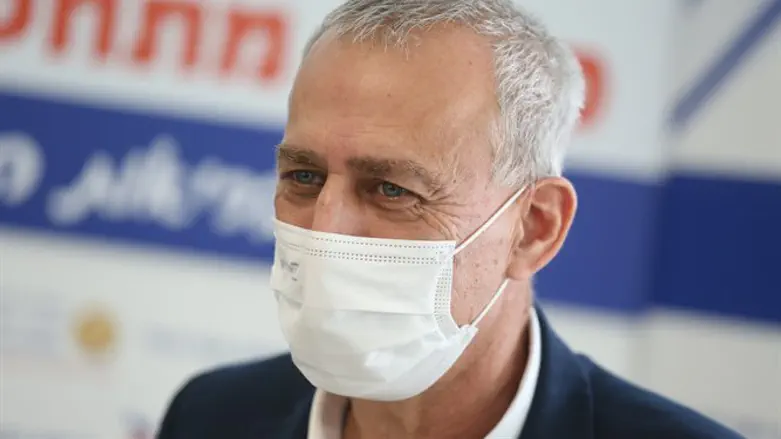
Data from Israel's Health Ministry published Wednesday morning showed that the R-nought for COVID-19 transmission is nearing 1.
The R-nought is the reproduction rate of the virus, measuring the expansion or decline of the pandemic. It is a delayed measure, and is published once every ten days. Currently, it stands at 0.95 - the highest since September.
Speaking at a conference of pediatricians, Health Ministry Director General Professor Nachman Ash said that Israel "has, practically speaking, made it out of the fourth wave," but warned that, "the drop in infections is slowing."
"This is disturbing," Israel Hayom quoted him as saying, "but at the same time we need to live with it, with an infection coefficient around 1. We have about 500 new cases each day. I cannot tell you that I am okay with this rise [in the infection coefficient], if it remains stable, it will be fine. If it rises above 1 - that's disturbing. I can tell you that, practically speaking, we have made it out of the fourth wave. Although in recent days there has been a slowing in the drop in infections, and there are about five hundred cases daily on average each week. That's not a small number of cases - after the third wave we reached even lower numbers, but it could be that under the circumstances today, this is the lowest we can reach."
Prof. Ash also mentioned the upcoming drive to vaccinate children against coronavirus, saying, "The vaccines will arrive this week, and we will be able to start next week. There are some issues we want to take care of, including that of vaccinating those who recovered, and the proposal to space out the first and second doses. There will be a meeting of the Staff for Management of Pandemics on Sunday. It's not clear that there is enough basis for making changes, but we need to think about it."
Hundreds of thousands of pediatric doses of the Pfizer-BioNTech coronavirus vaccine are expected to arrive in Israel on Wednesday at 17:55p.m., Israel Hayom said.
Regarding the Health Ministry's preparations for when the booster dose wears off, Prof. Ash said, "The second challenge we are facing is to identify when the booster wears off early enough that we can respond to it. This is not simple. We are following the data and it's not simple, especially when the infections drop from an analytical perspective. We are also following antibody levels, but that's not good enough to tell us that the protection is wearing off."
